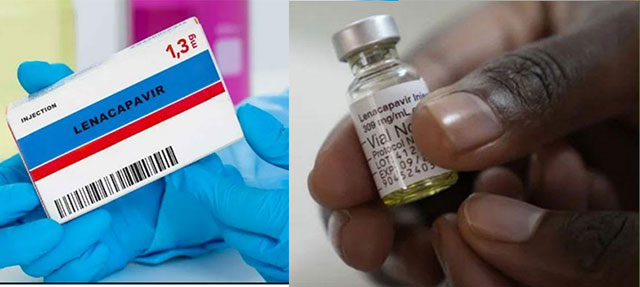(3 Minutes Read)
African nations have convened in Kigali, Rwanda, for the 13th International AIDS Society (IAS) Conference on HIV, with a strong focus on securing global partnerships to strengthen the fight against the disease. At the center of discussions is Kenya’s leadership in adopting innovative prevention tools—most notably, the newly approved injectable drug, lenacapavir.
On July 14, 2025, the World Health Organization (WHO) endorsed lenacapavir for HIV prevention. The biannual injection, hailed for its convenience and privacy, significantly reduces the risk of HIV infection by preventing viral replication in the body. Unlike daily oral medication, the long-acting shot is especially beneficial for mobile populations and those facing stigma associated with daily pill use.
“This innovation could transform HIV prevention efforts in Kenya,” said Prof. Kenneth Ngure, a leading researcher from JKUAT and IAS President Elect. “Clinical trials, including those in Africa, show that lenacapavir offers near-complete protection when used properly.”
Kenya has been internationally recognized for expanding access to daily oral PrEP since 2016. However, challenges such as high dropout rates, stigma, and limited access among key populations have hindered its full impact. Lenacapavir offers a promising alternative to overcome these barriers.
Community voices are now urging an inclusive rollout. Nelson Otwoma, Executive Director of the Network of People Living with HIV and AIDS in Kenya (NEPHAK), emphasized the need for equitable access: “We now have the tool. What matters is making it accessible—without stigma, without barriers, and with clear, consistent education.”
The WHO’s endorsement follows prior approval by the U.S. Food and Drug Administration. WHO Director-General Dr. Tedros Adhanom Ghebreyesus described lenacapavir as “a powerful addition to the prevention toolbox,” especially in the ongoing absence of an effective vaccine.
Kenya is among nine countries selected as early adopters of lenacapavir, supported by the Global Fund. Angella Langat, Director at the National Syndemic Diseases Control Council (NSDCC), confirmed that preparations are underway: “With WHO’s endorsement and growing political momentum, we are now moving toward regulatory review and a national adoption strategy.”
Read Also:
https://trendsnafrica.com/kenyas-call-for-sh5-billion-ensuring-continuity-of-hiv-services/
The Ministry of Health, through NASCOP and NSDCC, has announced that the injectable drug will be available to Kenyans by January 2026.A parliamentary delegation led by Dr. James Nyikal, Chair of the Departmental Committee on Health, reaffirmed Kenya’s commitment to sustainable HIV response. “We are committed to support the HIV domestic financing agenda and oversight expenditure allocated to the response,” said Dr. Nyikal. Other attending lawmakers include Patrick Ntwiga Munene, Martin Peters Owino, Mary Maingi, and Martin Pepela.
As the IAS 2025 conference progresses, lenacapavir stands out as a symbol of progress—where scientific innovation, policy leadership, and community advocacy converge to bring the world closer to ending HIV as a public health threat by 2030.





